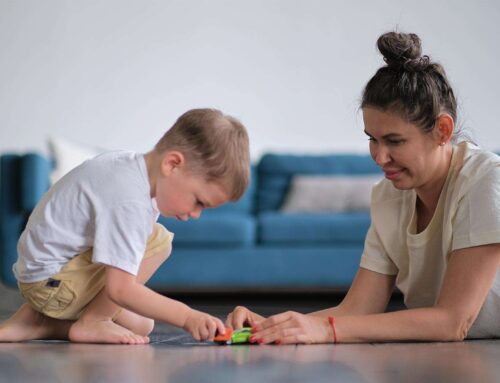Having an autistic child can be an enriching experience, yet it also presents unique challenges. While every child develops differently, those on the autism spectrum often experience the world in ways that differ from neurotypical individuals. Understanding these differences can be crucial in building a strong and supportive relationship with your autistic child.
Sensory Processing Differences
One key aspect of understanding your child’s perspective is appreciating their unique sensory processing. Autistic individuals may experience sensory overload, feeling overwhelmed by sights, sounds, smells, textures, and tastes that others may barely notice. This can lead to distress and withdrawal in certain environments. Conversely, some autistic individuals may under-register sensory input, seeking out specific stimuli to feel grounded. Recognizing these sensory differences can help you create a more comfortable and supportive environment for your child.
Communication and Social Interaction
Autistic children may communicate differently than their neurotypical peers. They may have difficulty understanding and responding to nonverbal cues, such as facial expressions and body language. They may also prefer literal language and struggle with sarcasm or figurative speech. Additionally, social interaction can be challenging for autistic individuals. They may have difficulty initiating conversations, making eye contact, or participating in group activities. This doesn’t mean they are not social; they simply may need different forms of interaction and support to connect with others.
Building Empathy and Understanding
Empathy is essential in understanding your autistic child’s perspective. Try to see the world through their eyes and imagine how they might experience sensory overload, social interactions, and other situations. Observe their behaviors and consider what they might be trying to communicate. Remember, behind every behaviour is a need.
Promoting Neurodiversity
It’s important to remember that autism is not a disorder; it’s a neurodiversity. Autistic individuals have unique strengths and talents that contribute significantly to the world. Celebrating neurodiversity and fostering acceptance can empower your child and help them thrive.
Here are some additional tips for understanding and supporting your autistic child:
- Educate yourself: Learn as much as you can about autism spectrum disorder. Seek information from reliable sources, such as Autism Speaks or the National Autistic Society.
- Communicate openly and honestly: Talk to your child about their experiences and ask them how you can best support them.
- Create a structured environment: Provide your child with a predictable routine and a calm and organized environment to help reduce anxiety.
- Be patient and understanding: Autistic individuals process information and learn differently than neurotypical individuals. Be patient and offer support as they navigate life’s challenges.
- Celebrate their strengths: Focus on your child’s unique talents and abilities. Encourage their interests and passions.
- Connect with other families: Joining support groups or online communities can provide valuable resources and connect you with others who understand your experiences.
Understanding your autistic child’s unique perspective is a continuous process. By embracing their differences, celebrating their strengths, and providing consistent support, you can help your child reach their full potential and build a strong and loving relationship.
If you are serious about learning, then one-on-one classes at OrbRom Center are the best way to go. Our experienced teachers will help you achieve your academic goals. Contact us TODAY.
Welcome to OrbRom Centre
Choosing learning support for your child is one of the most important decisions you will make, and I welcome you to discover more about why OrbRom is the best option in Phnom Penh.

H. Sophaneth B.Ed, M.Ed





Leave A Comment